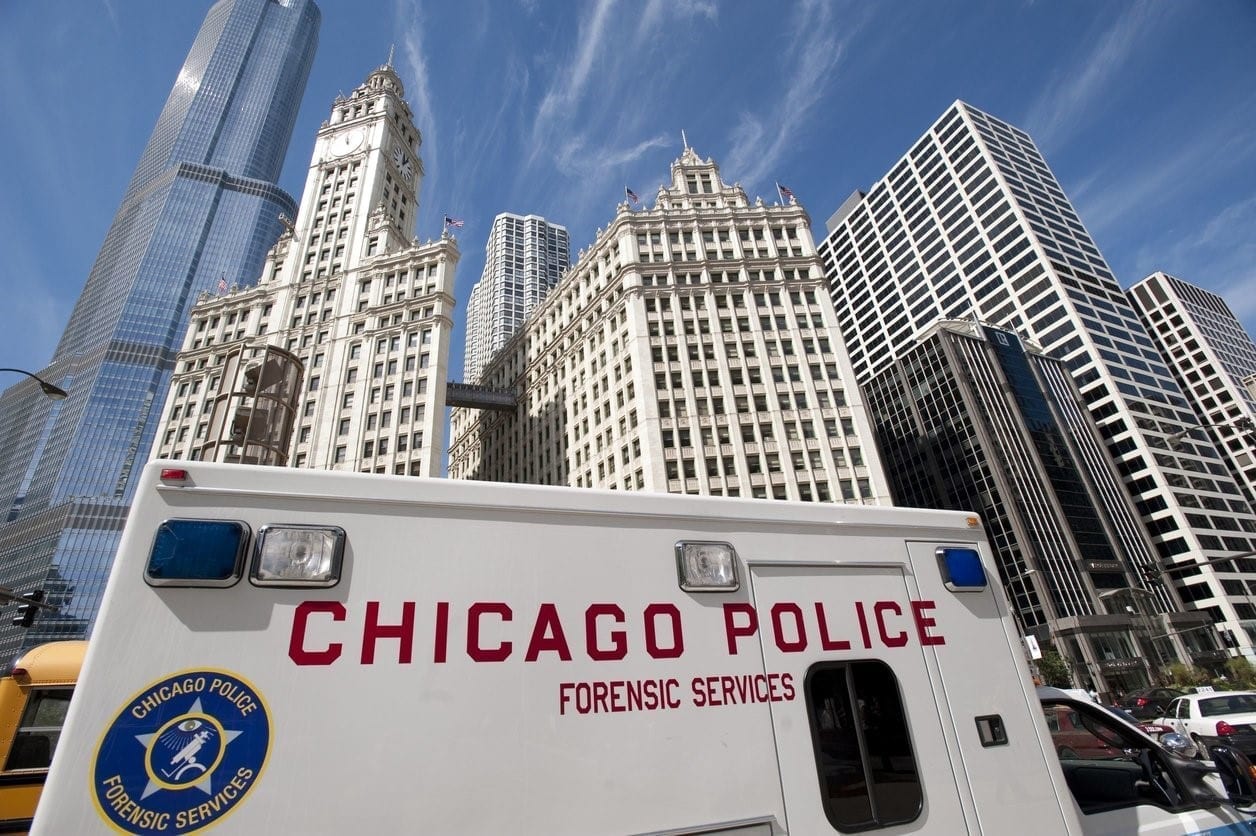Chicago Set to See Most Murders in One Year Since 1997
Early in the morning on Thursday, December 1st, Chicago Police found a 19-year old man shot to death on the West Side. The gunshot wounds penetrated his head and chest. By the end of the day, no arrests had been made related to the fatal shooting – but Chicago’s Police and local media did have a very important announcement: this case was the 701st Chicago homicide in 2016.
That’s right. In less than one year, our city has experienced over 700 homicides. If Chicago sees 60 more homicides by the end of the month (which police believe is not only possible, but confidently predict will happen), the city will have seen the most murders since 1997.
The number of murders in Chicago is 58% higher than the previous year. (In all of 2015, there were 450 homicides.) The number of overall shooting incidents so far this year is 49% higher compared to this time last year.
These numbers are not part of a growing trend in the country. New York City has only seen 306 murders so far this year, and the number is even lower in other big cities like Los Angeles. In fact, despite popular opinion that crime has recently increased, the nation as a whole has seen some of the lowest violent crime rates in the last 30 years.
No, these increased rates are unique to Chicago. Why is it happening?
What’s Going on In Chicago to Cause So Many Homicides?

There isn’t one answer as to why 2016 has been such a violent year for our city. Experts attribute the high murder rate to many factors:
- Garry McCarthy, former head of the Chicago Police Department, said that an anti-police movement has caused police to look at their policies and make changes in order to improve relations with the black communities in Chicago. McCarthy says some of these changes are actually causing “more black lives to be lost.”
- Police officials and local activists believe that the tension between black communities and officers is not seriously contributing to the high homicide rate. Instead, anti-violence activists have said that loose gun laws give people easier access to guns, which in turn leads to more gun deaths. Gang activity and disputes over territory and money are also seen as large factors in the city’s high homicide rate.
- Additionally, activists believe that young people living in the communities where most of the violence is occurring (low-income and predominately black communities on the city’s South and West sides) are developing a dark edge and “self-hatred.” Activists have noted that some of the homicides this year committed by young people started simply over a small argument on social media.
- These low-income neighborhoods have faced decades of segregation, neglect, and devastating poverty, which can be attributed as some of the root causes for the continued, consistent violence and high homicide rates.
- Many locals around the neighborhood believe the continuously high rate of homicide comes from these murders going unsolved. The police, for their part, have stated that the one of the biggest reasons for unsolved murders is the lack of witnesses who are willing to cooperate with police.
What Happens Going Forward?

With so many factors leading to high murder rates in Chicago, it is hard for city and law enforcement officials to move forward with one or two clear solutions that will directly decrease the murder rate on the city’s South and West sides. Efforts, however, are being made.
Now that the high number of Chicago’s murders is out in the public, there will surely be some public demand for police to not only go deeper with their investigations of retaliatory shootings, but also come down on criminals with harsher sentences to keep people behind bars and lower the murder rate in 2017 and beyond.
It’s hard to say exactly what this means, though. Our state has multiple charges for murder, and the penalties for homicide in Illinois range from 4-20 years in prison for second-degree murder to the possibility of life in prison for a first-degree murder conviction. Those consequences are already incredibly harsh.
Still, something clearly needs to change. To that end, Chicago also plans to add over 1,000 officers to the local police department in the next two years. Perhaps some of these officers will be focused on arresting people for gun and weapons possession, a crime that actually decreased this year but is clearly linked to the high rate of violence and murder.
However police decide to crack down, they still have to respect your rights. If you are arrested on weapons charges, homicide charges, or any charge for a violent crime, the best way to protect your rights and your future is to work with a knowledgeable Chicago defense attorney to craft a strong strategy.
About the Author:
Andrew M. Weisberg is a former felony prosecutor who now serves as a defense attorney in the greater Chicago area. He has extensive experience in handling all types of criminal cases, from sex offenses and domestic violence to retail theft-related crimes, Murder, and drug crimes.







 Blog Home
Blog Home 










